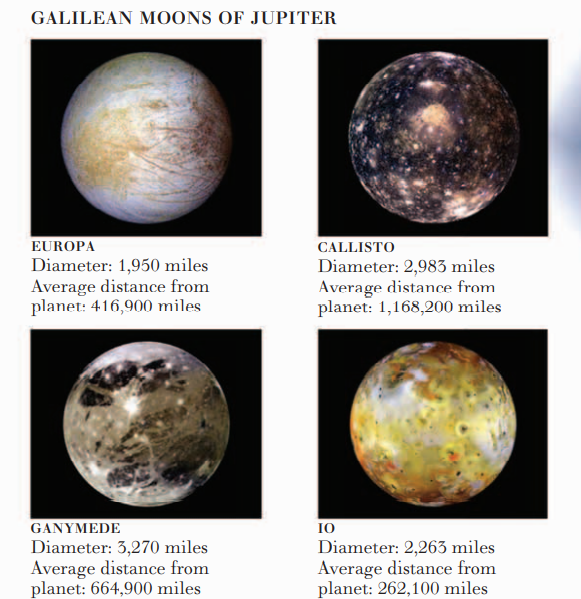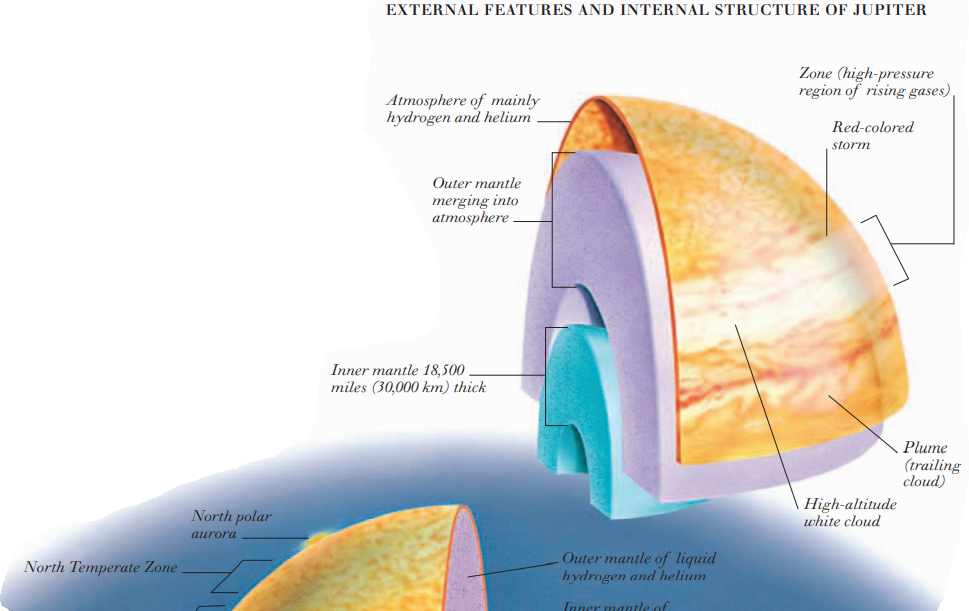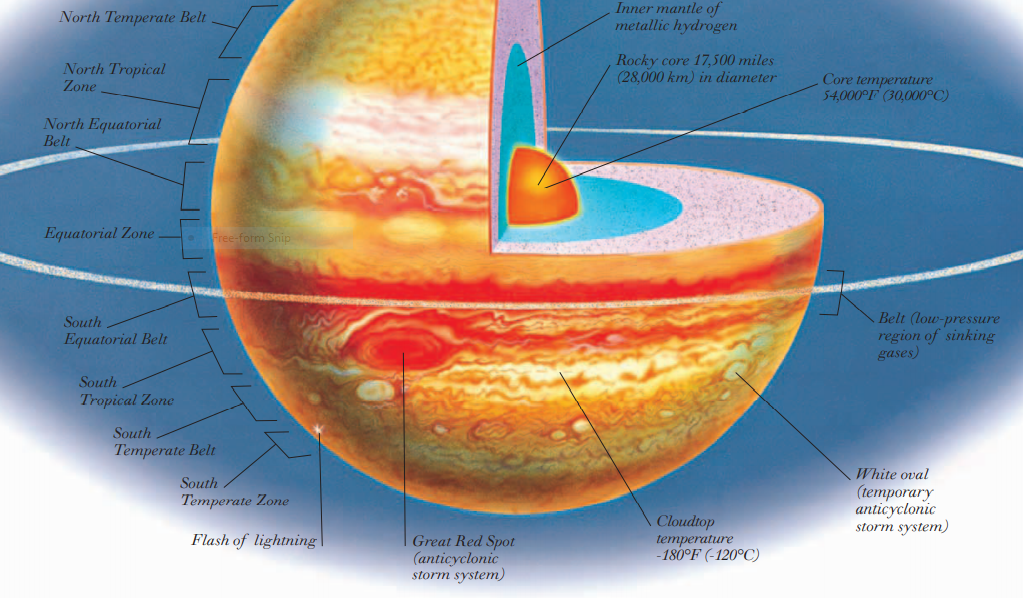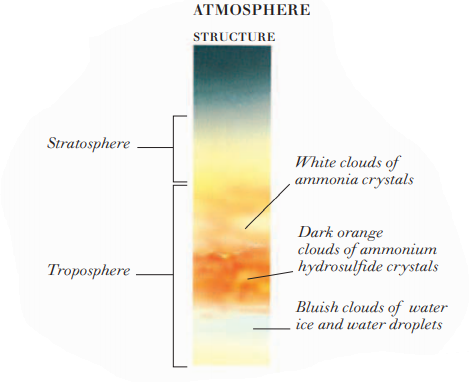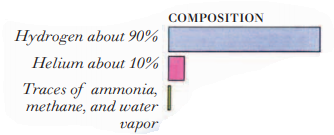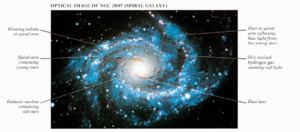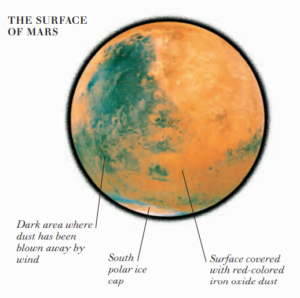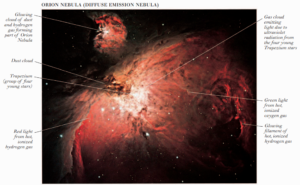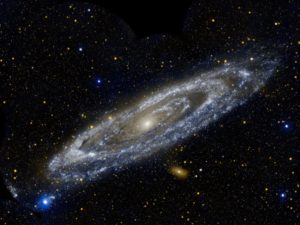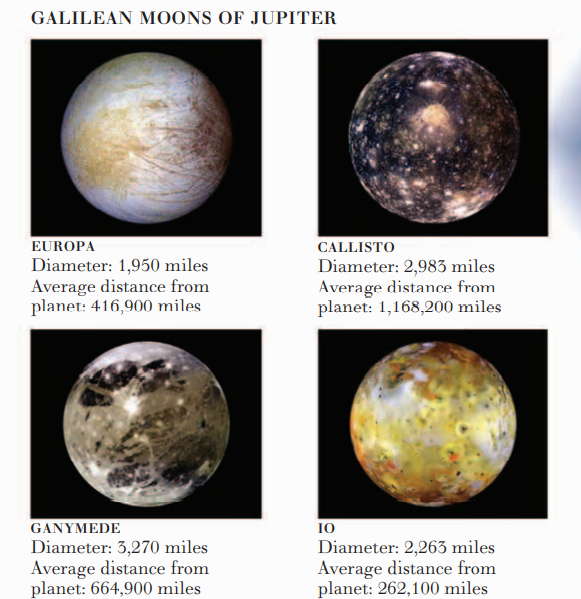
JUPITER IS THE FIFTH PLANET from the Sun and the innermost of the four giant planets. It is the largest and the most massive planet, with a diameter about 11 times that of the Earth and a mass about 2.5 times the combined mass of the seven other planets.
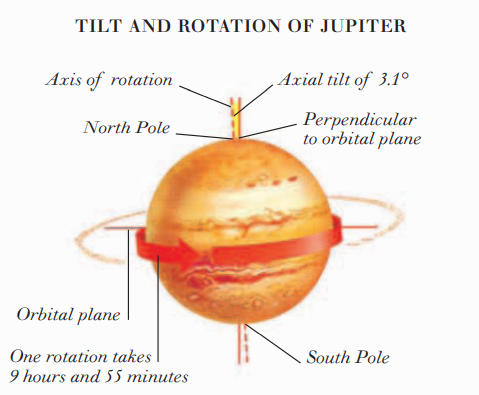
Jupiter is thought to have a small rocky core surrounded by an inner mantle of metallic hydrogen (liquid hydrogen that acts like a metal). Outside the inner mantle is an outer mantle of liquid hydrogen and helium that merges into the gaseous atmosphere. Jupiter’s rapid rate of rotation causes the clouds in its atmosphere to form belts and zones that encircle the planet parallel to the equator. Belts are dark, low-lying, relatively warm cloud layers, and zones are bright, high-altitude, cooler cloud layers. Within the belts and zones, turbulence causes the formation of cloud features such as white ovals and red spots, both of which are huge storm systems.
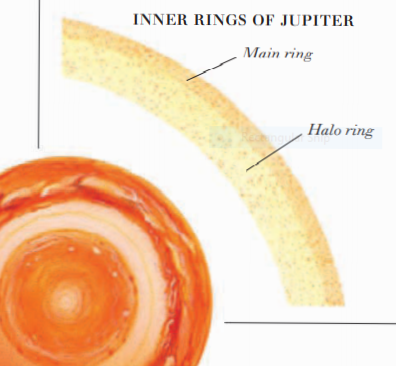
The most prominent cloud feature is a storm called the Great Red Spot, which consists of a spiraling column of clouds three times wider than the Earth that rises about five miles (8 km) above the upper cloud layer. Jupiter has a thin, faint, main ring, inside which is a tenuous halo ring of tiny particles. Beyond the main ring’s outer edge is a broad and faint two-part gossamer ring. There are 63 known Jovian moons. The four largest moons (called the Galileans) are Ganymede, Callisto, Io, and Europa. Ganymede and Callisto are cratered and icy. Europa is smooth and icy and is thought to have a subsurface water ocean. Io is covered in bright red, orange, and yellow splotches. This coloring is caused by sulfurous material from active volcanoes that shoot plumes of lava hundreds of miles above the surface.
